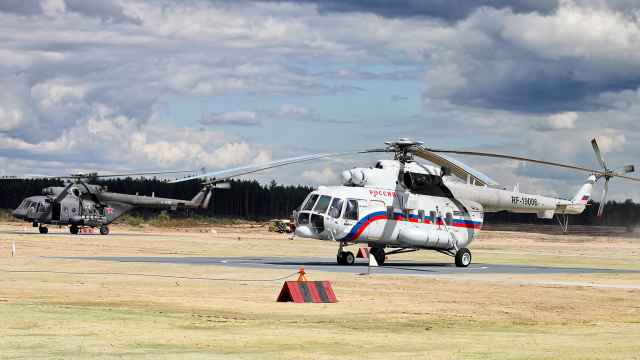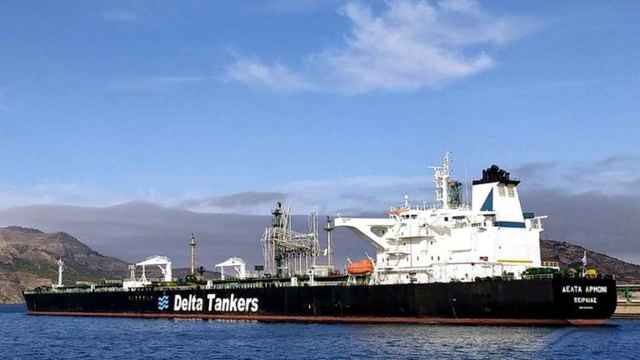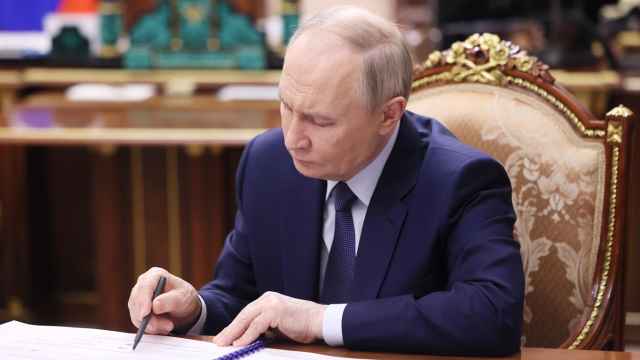Austria on Thursday became the latest European country to agree to ease its visa policy with Russia, with its president saying Vienna should adopt the most liberal policy possible under the Schengen agreement.
"I do not see any reason why we should not introduce this system if it works fine in France, Italy and Spain," Austrian President Heinz Fischer told Interfax in an interview released Thursday as he held Kremlin talks with President Dmitry Medvedev.
The three European countries regularly give two-year, multiple-entry tourist visas to second-time applicants and five-year, multiple-entry visas to third-time applicants from Russia, while most other countries in the 25-member Schengen zone are much more restrictive.
Fischer, whose office is largely ceremonial, added that Austria's new interior minister, Johanna Mikl-Leitner, would look into the issue and that any decision was up to her.
Fischer told reporters after the Kremlin meeting that he hoped progress would be reached before an EU-Russia summit next month in Nizhny Novgorod, Interfax reported.
But Medvedev conceded at the same briefing that it would "take some time" before visa-free travel with Europe was achieved.
Moscow has been pressing the European Union, which comprises most Schengen members, to lift visa restrictions. But it has faced political opposition from a number of states, including Germany. The Schengen agreement requires unanimity for any changes in visa regulations.
Medvedev and Fischer on Thursday also signed a declaration for a so-called modernization partnership, committing both sides to "make efforts to facilitate economic cooperation."
Both heads of state said they hoped to boost a joint cargo rail link between Austria's ÖBB Group and Russian Railways, Interfax reported.
Despite a population of just 8.5 million, Austria is among Russia's bigger economic partners. With $4.2 billion in direct investment, the country ranked the 12th-largest foreign investor last year, when bilateral trade reached $3.48 billion, according to an e-mailed Kremlin statement.
Austria is also an important energy partner and has been designated as the destination of the EU-backed Nabucco pipeline, which has been plagued by financing problems.
Medvedev said Thursday that he hoped the EU would assign priority status to the rival project South Stream, backed by Gazprom. Fischer, however, said South Stream and Nabucco were both necessary and important projects.
Fischer, who is accompanied by more than 100 business executives, will meet Prime Minister Vladimir Putin and Mayor Sergei Sobyanin on Friday and plans to visit Kazan on Saturday.
Fischer said Medvedev had accepted an invitation to visit Austria and the date would be decided later.
Industry representatives said Fischer's visit came at a time when the mood among Austria's sizable Moscow-based business community was extremely upbeat.
"There is a large number of businesses of all sizes that are extremely eager to come to Russia," said Christian Ziegler, an Austrian board member of the Association of European Businesses in Russia.
But Sergei Rychenkov, who has imported Austrian wine for almost 10 years, said he doubted that Fischer's visit would bring improvements for his business.
Rychenkov complained in a telephone interview that he spends at least half his profits on Russian fees, like import storage, and other red tape. "Russian business is very unstable," he said. "There have been many improvements, but they are small."
A Message from The Moscow Times:
Dear readers,
We are facing unprecedented challenges. Russia's Prosecutor General's Office has designated The Moscow Times as an "undesirable" organization, criminalizing our work and putting our staff at risk of prosecution. This follows our earlier unjust labeling as a "foreign agent."
These actions are direct attempts to silence independent journalism in Russia. The authorities claim our work "discredits the decisions of the Russian leadership." We see things differently: we strive to provide accurate, unbiased reporting on Russia.
We, the journalists of The Moscow Times, refuse to be silenced. But to continue our work, we need your help.
Your support, no matter how small, makes a world of difference. If you can, please support us monthly starting from just $2. It's quick to set up, and every contribution makes a significant impact.
By supporting The Moscow Times, you're defending open, independent journalism in the face of repression. Thank you for standing with us.
Remind me later.






